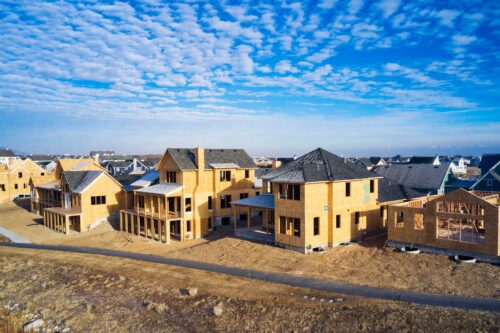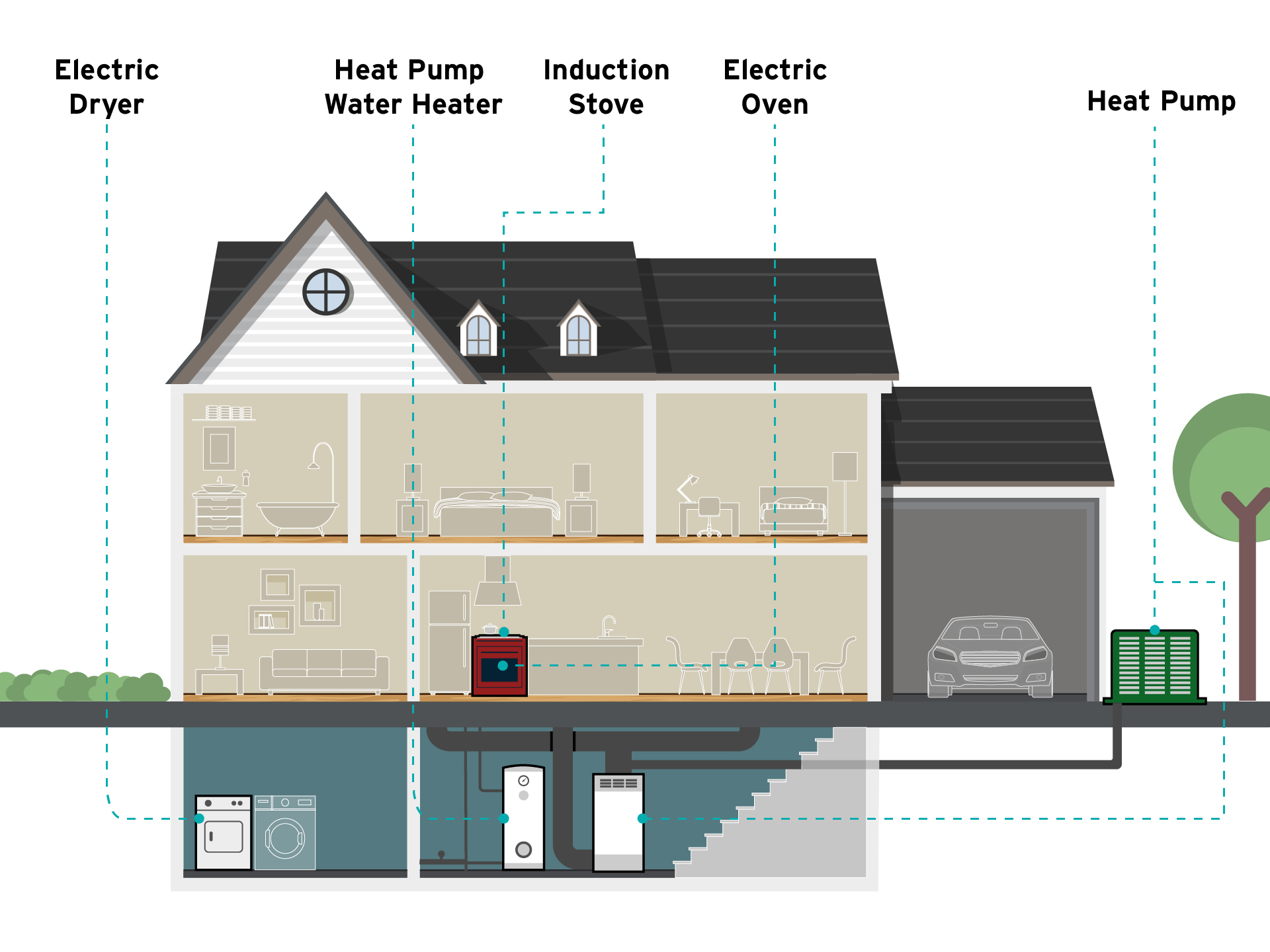
Report | 2022
The Economics of Electrifying Buildings: Residential New Construction
Electrifying Homes to Save Energy, Money, and Carbon

To help inform crucial policy and market decisions with up-to-date cost analysis information, RMI updated and expanded its 2020 analysis, The New Economics of Electrifying Buildings. Due to significant changes in gas and electricity rates and evolving construction costs, we examine the economic and climate impacts of building all-electric single-family new construction — homes that rely on electric appliances for space and water heating, cooking, and clothes drying.
Our analysis shows that all-electric, single-family new construction is more economical to build and operate than a home with gas appliances and has lower lifetime emissions in all nine cities studied. This is because mixed-fuel homes have gas furnaces, water heaters, air conditioning, and new gas connection costs. The all-electric home, by comparison, uses a single heat pump system for both heating and cooling and a heat pump water heater. Heat pumps also provide significant carbon and energy savings over gas appliances, resulting in a lower annual utility cost for the all-electric home.
Additionally, the 15-year CO2 emissions of all-electric homes are significantly lower than those of mixed-fuel homes for all the studied cities, even if gas continues to provide a significant share of electricity generation.
The Economics of Electrifying Buildings: Residential New Construction compares the economics and environmental impacts of electrification for single-family new construction detached residential buildings in 9 different cities in the US. Findings of this study provide valuable insights to state and local policymakers who seek analysis for the economic and environmental impacts of electrification for their specific region. It also supports policies that incentivize or require all-electric residential new construction and eliminate gas infrastructure subsidies for new buildings and could be used as an economical and environmental justification for home buyers to look for all-electric new construction due to their lower operating costs.
